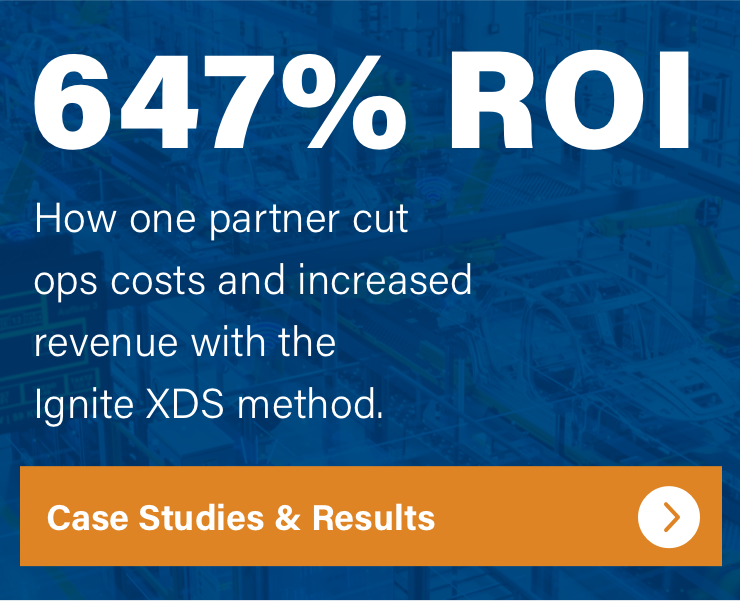
5 Strategic Moves That Make Your Company More Valuable...Even If You Never Sell
Most business owners wait until they’re ready to sell to think about valuation. That’s backward.
Valuation strategy isn’t just for exit planning. It’s for companies that want to grow with confidence, attract better clients, retain top talent, and create margin, in both time and revenue. And in today’s market, that kind of readiness isn’t optional. It’s everything.
Here are five strategic moves that will make your business more valuable, on paper and in practice:
1. Turn Customer Experience Into an Operational System
Most companies treat customer experience like a feeling. But if it isn’t operationalized, it isn’t scalable and it definitely isn’t valuable.
Here’s the reality: a great customer experience is the byproduct of strong systems. From lead to renewal, every touchpoint should be intentional, repeatable, and measurable. If your team can’t map the customer journey, or explain who owns what, you’re not just missing opportunities. You’re eroding trust, reducing retention, and killing lifetime value.
Why it matters to valuation: Predictability increases enterprise value. Buyers (and customers) want confidence that what happens on Day 1 will still be true on Day 1,000. That only comes from a documented, consistent customer journey that minimizes friction and maximizes outcomes.
Pro-Tip: Map your full customer journey, from first touch to long-term loyalty. Identify drop-offs and inconsistencies. Assign clear ownership to each stage and build SOPs to ensure repeatable delivery.
2. Align Sales, Marketing, and Ops Around a Unified Growth Plan
Silos don’t scale. If your marketing team is chasing MQLs, sales is chasing quotas, and operations is chasing deadlines, you don’t have a growth strategy, you have internal conflict.
True alignment isn’t about making every department do the same thing. It’s about making sure every department is working toward the same outcome, with clarity around roles, responsibilities, and success metrics.
Why it matters to valuation: Buyers see through the façade of “great marketing” if sales can’t close or operations can’t deliver. Misalignment drives churn, weakens margins, and limits scalability. Alignment, on the other hand, creates velocity.
3. Get Internal Clarity on What Makes You Valuable
If your team can’t explain your value in one clear sentence, your prospects won’t get it either. And neither will a potential buyer.
Most companies overcomplicate their message. They lead with features, not outcomes. They assume the value is obvious, when it’s anything but. The result? Confused teams, missed deals, and a brand that doesn’t convert, internally or externally.
Why it matters to valuation: A sharp, differentiated value proposition increases perceived value and buyer confidence. It helps your brand punch above its weight and makes every part of the business easier to scale.
Pro-Tip: Ask five team members to explain your value in one sentence. If you hear five different answers, start fixing your message. Get clear on the problem you solve, who you solve it for, and what makes you the best at it.
4. Build Infrastructure That Works Without You
If your business breaks when you step away, it’s not a business, it’s a job you own. And buyers don’t pay a premium for founder dependency.
Companies that scale well have documented processes, distributed knowledge, and systems that don’t require constant oversight. Whether you’re exiting or just trying to grow, systems create consistency and consistency creates value.
Why it matters to valuation: Founder-driven businesses are high risk. System-driven businesses are low risk. The less the company relies on individual heroes, the more it can grow and the more it’s worth.
Pro-Tip: Identify the top three areas that still rely on founder input. Document them. Automate where you can. Delegate with accountability. The goal: a business that runs predictably, with or without you.
5. Eliminate the Friction That Scares Off Buyers
You may not feel your inefficiencies, but a buyer will. Weak margins, overreliance on one customer, outdated systems, inconsistent data, these are red flags that crush enterprise value, even if revenue is strong.
The fix? Think like a buyer before you ever become one. Buyers don’t just want a business that works. They want a business that scales.
Why it matters to valuation: Risk lowers value. Operational friction, key-person dependencies, and stale tech signal risk. Clean those up now, and you’ll build a stronger, more resilient company, whether you plan to sell or not.
Make Your Business More Valuable, Starting Today
You don’t have to wait for an exit to act like a buyer. In fact, the most resilient, scalable companies operate like they’re always ready, because readiness builds value. These five moves aren’t just about financial metrics. They’re about building a business that runs smoother, grows faster, and delivers consistently, whether you're selling or scaling.
Want to build that kind of business? Let’s talk. We’ll help you uncover what’s holding you back and design a system that drives real, measurable value.


